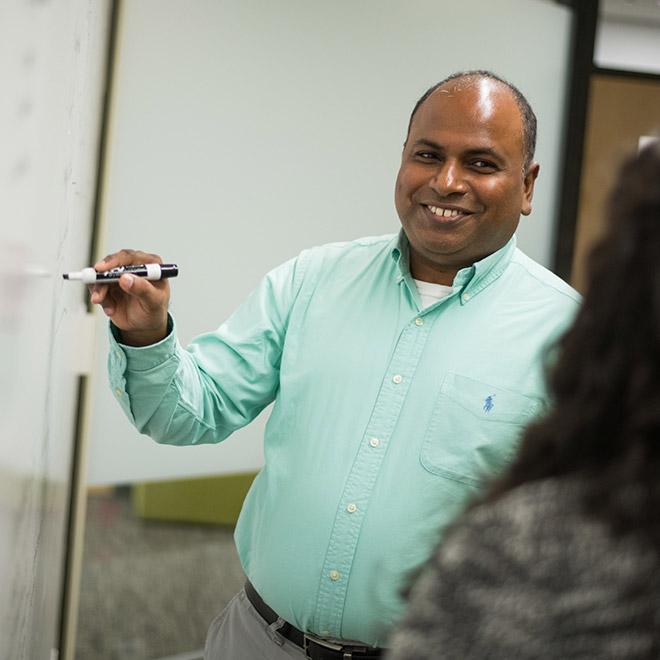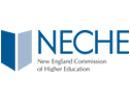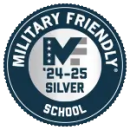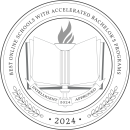Complete ENGL-100
Explore Integrated Studies
The Integrated Studies bachelor's degree is a unique and flexible program that enables you to create a 40-credit focus area using your previously earned college credits and demonstrated prior learning from your professional experience. That prior learning, combined with professional courses, general education courses, and elective choices provides you with opportunities to blend what you have done before with what you want to do next in this integrated studies degree online.
Finish your program faster with credit for prior learning and experience.
Differentiate your degree and get your resume noticed with an added certificate. Speak with your advisor for information.
Build Your Career Future
Increasing numbers of jobs - across all industries - now require a minimum of a bachelor's degree for hiring. Our integrated studies degree helps you gain the competencies today's employers are looking for, with an emphasis on professional and essential skills (such as critical thinking and communication) that are applicable to a variety of fields, and that you can carry through your career. You'll also be able to differentiate your degree through a focused area of specialization that is based on your previous academic and professional experience.
This bachelor of integrated studies degree is ideal if you have already completed some post-secondary coursework, earned professional trainings and/or certifications and are seeking to leverage those experiences. by creating a focus area within the bachelor’s degree that maximizes the number of credits you can transfer in.
Some examples of Integrated Studies graduates’ created focus areas:
- Criminal Justice: prior learning credit from law enforcement officer training, direct transfer credit, and courses taken at Champlain College
- Accounting/Business Management: combined direct transfer credit, plus courses taken at Champlain College
- Border Patrol/Immigration: combined credit from Military Police, Border Services training
- Mathematics: 40 directly transferred credits
- Law: 40 directly transferred credit
Program Curriculum
Learn more about Champlain's 100% online integrated studies bachelor's degree, designed for working professionals.
Champlain's online integrated studies courses encompass the top skills needed by today's business professionals. Graduates of the program are required to complete the following courses.
Area of Study (from prior experience. 40 credits)
Professional Courses (18 credits):
General Education Courses (42 credits)
General Electives (20 credits)
Students will learn about the application of positive individual and group strengths and capacities that can be recognized, evaluated, and expanded to advance organizational well-being. This course encourages students to apply positive organizational behavior processes to everyday challenges organizations face to drive positive workplace behaviors and outcomes. This course also helps students to practice and gain skills, knowledge, and competencies to become positive and impactful leaders and change-makers from whatever position they hold.
Understanding financial statements and how to interpret them is important to all those working in businesses. In this course students learn the relationship among financial statements; study how to interpret this information and to apply this understanding in real-world contexts; and learn how to use financial information to help make sound management decisions.
In this course, students will investigate how communication practices and processes shape organizations across settings such as businesses, nonprofit, and civic organizations. By examining case studies, applying theory to practice, and reflecting on their own experiences and observations, students critically analyze how communication impacts collaboration, conflict management, and organizational change. Students will explore the role of digital and mediated communication and how organizations communicate externally with stakeholders, partners, and the broader environment.
Provides an overview of the entire legal system, with an emphasis on contract rights. Discusses the essential elements of a contract, the breach of contracts and the remedies for breach. Presents business and consumer laws, including white-collar crime, landlord-tenant rights, real property interests and administrative law.
Principles of Economics introduces the fundamental concepts of economics - the study of how people manage resources, and how they react to scarcity. This course focuses on both microeconomics (the behavior of consumers and companies) and macroeconomics (large-scale economic factors such as employment and interest rates), so that you'll gain a broad understanding of how a modern market economy functions, how decisions in business settings are informed by economics, and how economics applies to your everyday life.
Project Management is the formal application of knowledge, skills, tools, and techniques to project-based activities to meet organizational requirements. Project management is accomplished through the use of processes such as Initiating, Planning, Executing, Monitoring and Controlling, and Closing. Project managers can divide projects into these phases to provide better management control with appropriate links to the ongoing operations of the organization. Collectively, these phases, known as the project life cycle, form the foundation for the practice of project management and are guided by the Body of Knowledge from the Project Management Institute (PMI).
In addition to the following requirements, students must also complete 3 Credits of a General Education Elective (Any ARTS, COMM, CRIT, ECON, ENGL, HIST, MATH, PHIL, PSYC, SCIE, SOCI, MKCM 120, CRIM except CRIM-225)
This course introduces students to the foundational concepts needed to communicate effectively in writing for academic study and professional development. Students will also learn to read critically to evaluate an author's message. Students will be introduced to rhetorical modes and their role in the development of written communication. Students will also learn how to use revision strategies to create written communication that meets its intended purpose for its intended audience
This course builds on students' proficiency in the writing process and rhetorical modes to introduce the use of sources in written communication. Students will practice information literacy as they learn to determine information needs from sources, develop effective search strategies, and incorporate sources in written communication, legally and ethically.
Prerequisites
Starting with a frame of human communication as a dynamic system of interactions in which people make choices that impact their relationships, other people, and themselves, students will define theory-informed communication concepts and processes, and critically examine how they apply to everyday life across a variety of contexts. Students will reflect on how the theory, concepts and processes apply to their own lives in becoming competent communicators who are knowledgeable, skilled, and versatile.
This course examines the principles of effective small group interaction. Students will analyze group development stages and small group roles. They will identify and evaluate communication skills that enhance small group cohesion and problem-solving. Students will explain how conflict affects group processes and compare face-to-face versus digital collaboration environments. These skills prepare students to participate effectively in group settings across academic, professional, and community contexts.
Students will learn and apply critical inquiry skills to analyze persuasive communication created by others and to develop persuasive communication/arguments of their own to solve problems in professional, civic, social, and personal contexts. Specifically, students will learn to recognize fallacies in logic; apply inductive and deductive reasoning strategies to the interpretation and development of persuasive communication; evaluate the validity of sources; and develop logically sound persuasive communication. Students will explore the roles of self-awareness, empathy, and ethics in the context of critical inquiry and the development of arguments.
Prerequisites
Complete ENGL-110.
This course is an historical overview, and examination of the evolution of digital, film, and print media, and their functions. Students will identify and analyze contemporary problems of the media such as the legal, social, economic and psychological implications of their relationships with society. They also will examine the ways in which marketing and PR professionals utilize the mass media channels to reach their intended target audiences.
This course explores the complex and evolving relationship between human beings and technology. Through a multi-disciplinary approach that draws on fields such as sociology, psychology, philosophy, and history, students will examine the ways in which technology has shaped human culture, identity, and values, as well as how humans have influenced and continue to influence the development, adoption and use of technology.
Mathematical reasoning, when applied to everyday and professional lives, has two dimensions: logic for deterministic situations and probabilities for non-deterministic situations. This course aims to help students develop these mathematical reasoning skills.
This course introduces students to basic statistics for data literacy. With a focus on exploring real-world data, students will interpret numerical information and utilize the tools necessary to complete the entire statistical process: designing a study; gathering, organizing, and analyzing sample data; and making inferences about a population. Students will demonstrate data-driven decision-making and effective communication of numerical data.
Introduces students to the biochemistry and physiology of nutrition and exercise. Emphasis will be placed on human body systems such as musculoskeletal, digestive, respiratory and circulatory, and their relationship to nutrition and fitness. Students will also study the biochemistry of energy conversion as it relates to exercise physiology. Laboratory sessions are designed to reinforce, by a hands-on approach, the principles discussed in lecture. Course includes two laboratory hours per week.
Students will develop the ability to apply scientific methods to understand the natural world, to identify scientific aspects of daily life, and to evaluate the quality of scientific information based on its source and the methods used for its generation.
In this course, students will gain an introduction to classical mechanics and learn about motion, force, energy, and momentum. The course covers vectors, scalars, and coordinate systems, as well as kinematics in one and two dimensions, Newton's Laws of Motion, circular motion, and kinetic energy and work. Students also learn about potential energy and energy conservation, collision theory, rotational motion, moment of inertia, torque, rotational dynamics, and angular momentum.
This course will introduce students to major streams of social justice thought, including historical social justice movements, theoretical problems having to do with social equality, personal freedom, marginalization, and stigmatization, and the ways in which civic and professional communities respond to these issues.
With pressure and release, a window opens and closes, recording light on a sensor. The simple action captures the instinct, judgement, and skill of the person behind the lens. This class will begin a study of the art and craft of photography. Students will develop their vision and their understanding of how to achieve it. Solid skills will be learned and many doors will be opened.
A survey of the continuing change experienced in art since the 15th century. Students will examine how an image is achieved as well as the significance of the subject represented. Individual inquiry concerning the nature of art is encouraged.
Students learn to appreciate films through the critical analysis of various elements of mise-en-scene, cinematography, editing and sound. The course introduces the conventions of classical Hollywood cinema, considers the work of one major director (auteur), and surveys selected international and independent films. Students view and discuss films each week.
Students in the course will explore the cultural history of the music genre broadly referred to as rock. Students will explore the social, economic and political contexts that are influenced by and that influenced each style in the United States. By listening, watching, reflecting upon, discussing and writing, students will explore how music takes on meaning, personally, and culturally. Topics and themes include the relationships between and among gospel, country, funk, folk, disco, rap and hip hop; the role of business and technology in those relationships, and political or transgressive elements of rock music.
Specific application of common tools for writing in the working world. Students will be instructed in rhetorical strategies of professional writing including style, report formats, editing, document design, and integration of visual aids. Students will complete a semester-long writing project; oral and written reports associated with the process of problem-solving within the project will be included.
Prerequisites
ENGL-112 or COR-125
Students will learn how to create conditions for successful conflict engagement, a necessary skill for any professional. The course focuses on the foundational capacities to remain calm and connected with oneself and others. In this state students can access helpful ideas and responses and be their best selves regardless of environment. Improving facility for conflict creates stronger relationships and reduces fear. By the end of the course, students will understand that disagreement and difference can become a source of personal and interpersonal growth.
In this course, students will explore and apply writing principles and techniques to effectively interpret and write technical workplace materials. Students will enhance and gain skills to communicate business and technical information by producing instructions, describing processes, applying document design elements, creating and integrating illustrations, researching and writing proposals and formal reports, and presenting content for decision-makers.
This course introduces students to the fundamentals of substantive criminal law. With this foundation for understanding the legal system students will identify the essential elements of crimes, including the criminal act, criminal state of mind, and jurisdiction. They will examine the rationale underlying criminal law, factors affecting criminal responsibility, and legal defenses. By analyzing real-world scenarios, students will develop skills to distinguish lawful from unlawful actions and prepare for advanced studies or careers in criminal justice.
This course focuses on the rules and procedures governing how the American criminal justice system must process individuals suspected, accused, and convicted of law violations.
In this course, students will explore the theory and fundamentals of criminal investigation, emphasizing practical applications for evidence handling and case development. Students will review basic responsibilities of investigators and protocols for report writing, evidence collection, and preparation of cases for trial. The curriculum examines investigative approaches for various crime categories, including violent offenses, property crimes, terrorism, and hate crimes, while introducing comparative perspectives from diverse legal systems.
Prerequisites
Take CRIM-120.
Principles of Economics introduces the fundamental concepts of economics - the study of how people manage resources, and how they react to scarcity. This course focuses on both microeconomics (the behavior of consumers and companies) and macroeconomics (large-scale economic factors such as employment and interest rates), so that you'll gain a broad understanding of how a modern market economy functions, how decisions in business settings are informed by economics, and how economics applies to your everyday life.
Students will study important themes in the social history of the United States since the Civil War. This course allows students to expand their critical thinking skills through an examination of primary and secondary sources. Themes might include: the evolving status of women; the immigrant experience; the concept of the American dream; the paradox of freedom vs. slavery; the minority experience; the tensions between social classes. Students will be evaluated primarily on writing assignments.
In this course, students will explore broad, foundational knowledge in psychology, including its history, major theorists and a survey of psychology subfields such as developmental, cognitive and social psychology. Students will also describe and assess the role of ethics and social responsibility in the study and application of psychological theory and practices.
In this class, students will explore how social relationships, groups, societies and culture develop and change over time. From a sociological theory foundation and employing the sociological imagination, students will examine the impact of social structures, institutions, and systems on individual lives. Students will apply sociological research methods to investigate sociological phenomena in their own lives.
Starting Fall 2026 the following changes will be made to the General Education curriculum:
- New category, Integration: CRIT 100 Mindsets for Modern Learning (3 credits)
- Social Science and Arts & Humanities categories combine, still just 6 credits required.
- General Education Electives: credits increase to 6
Additional Program Details
Graduates of the integrated studies bachelor's online program will demonstrate the following skills, knowledge, and competencies:
- Manage and Interpret interactions with fellow organization members.
- Diagnose learning needs and formulate goals and strategies to seek knowledge from multiple sources.
- Prioritize and set goals based on objectives and the availability of limited resources.
- Apply fundamental financial concepts to interpret an organization's economic performance.
- Examine basic contracts for appropriate content.
- Apply the concepts of supply and demand, markets and pricing to an organization.
- Examine basic contracts for appropriate content.
- Apply the concepts of supply and demand, markets and pricing to an organization.
- Evaluate and integrate a variety of material to create unique perspectives.
- Systematically analyze available information to produce data-driven responses to problems.
- Explore the ethical aspects of a decision to create sensitivity to the relevant issues and weight the considerations that might impact our choice of course of action.
Design your own degree and enhance its value and focus by adding a certificate. Adding a certificate allows you to develop specialized skills, strengthen your résumé, and tailor your education to align with career goals. Choose from the undergraduate or graduate certificates on this page.
Note: To earn a certificate, you must speak with your advisor first. You must be officially enrolled in the certificate program before you complete the required courses in it — coursework completed prior to enrollment cannot be applied later, and certificates may not be added retroactively. Careful planning with an advisor is essential to ensure all policies and timelines are met.
Our admissions team seeks to admit students who:
- Demonstrate a solid academic foundation - a minimum 2.5 GPA is our recommendation, though exceptions may be made on a case-by-case basis for those who demonstrate a potential for academic success in other ways.
- Possess an aptitude for success in an online learning environment.
- Exhibit the ability to make a positive contribution to the Champlain College Online community.
To learn more about submitting transcripts, or requirements for home-schooled students, those educated abroad or returning students visit our Undergraduate Admissions page.
Our transfer credit evaluation team works hard to ensure you get the transfer credits you deserve, from a variety of sources including prior college credits, work experience and training, military training and experience, and more. Our goal is to help you graduate from Champlain College Online as quickly and affordably as possible. Visit our Transfer Credit Options page to learn more.
Champlain College Online's social sciences faculty, led by Department Chair Dr. Janet Morrison, are expert practitioners in the field. Their industry expertise ensures that our curriculum is aligned with the needs of employers, and reflects the skills today’s social science professionals need for success. Classes led by our seasoned experts will give you real-world insight into the field, and create a rich community of career-focused learning.
Tuition & Costs
Online Undergraduate Tuition Fall '25 - Summer '26
Tuition & Costs
Online Undergraduate Tuition Fall '26 - Summer '27
* Alumni is defined, for this tuition rate, as any degree program graduate from Champlain College or Champlain College Online.
** Veteran rate effective Spring 2025, not retroactive
See the undergraduate cost of attendance and fees here
Affordability and Paying For Your Education
We provide a number of options to make your online education affordable, including preferred tuition for alumni, associate degree graduates, community college graduates, and military.
What Can You Do With A Degree In Integrated Studies?
Business and financial occupations are expected to grow 8% from 2020 to 2030 faster than the average growth for all fields, as a result of an increasingly complex global business landscape. The median annual wage for these roles is $72,250.*
In our online integrated studies degree program, you will create a focus area that is tailored to your academic background and professional experiences, and will gain the competencies today's employers are looking for. This degree will prepare you for a variety of career paths in the business world, including human resources, business management, information technology, administrative services, operations, and sales.
*Sources: Bureau of Labor Statistics (BLS), 2020; job titles: Study.com, 2020
Top Jobs for Bachelor's in Integrated Studies Graduates
- Business Development Specialist
- Information Technology Specialist
- Management Consultant
- Office Manager
- Operations Manager

Why Champlain
Affordability
"With Champlain's transfer credit policy, I was able to apply much of the education I had already received toward my bachelor's degree, making it much more affordable. I feel like the value I received from the program way outweighed the price I paid for it."

Academic Excellence and Recognition

Regionally accredited by the New England Commission of Higher Education

Designated as a Military Friendly School for our commitment to the military community
Ranked among the best by Tech Guide for game design and computer science

Named the among the best schools with accelerated bachelor's degrees by Intelligent.com
Meet the Program Director
Janet Morrison, Ph.D.
- BS, Integrated Studies
- General Education Curriculum
- Social Science Programs
About
Dr. Morrison has been with Champlain College since 2002, first as faculty; since 2013 as an Academic Advisor, and then as the Associate Director of Academic Advising. While in the Academic Advisor role, she also developed the role of student success coach, and contributed to the development of Champlain College Online's two orientation courses for new students: Introduction to Online Learning; and Introduction to Academic Integrity.
Her dedication to teaching excellence and students' lived experience in their classes began in graduate school at the University of Maine (M.A., Speech Communication), and Southern Illinois University (Ph.D., Speech Communication) and continued through several academic roles prior to continuing her career at Champlain College Online.

Frequently Asked Questions
The Bachelor's in Integrated Studies is a flexible, interdisciplinary degree program that allows students to design their own course of study. Unlike traditional degrees with a set curriculum, this program lets you combine courses from multiple disciplines, such as business, technology, and the arts, to create a personalized learning path tailored to your career goals. Champlain College offers a fully online Bachelor’s in Integrated Studies that lets you learn flexibly, on your schedule.
Champlain College's Bachelor of Integrated Studies is ideal for working professionals due to its:
- Customizable Focus Area: Tailor your degree with work experience and certifications.
- Online Flexibility: Study at your own pace with online courses.
- Prior Learning Credit: Earn credits for professional training and experience.
- Interdisciplinary Approach: Combine courses from various fields to meet career goals.
- Career-Oriented: The curriculum is designed to align with industry needs.
This flexible program allows you to balance work, education, and career advancement.
Yes, in Champlain College's Bachelor of Integrated Studies program, you can choose any area of study for your focus area, as long as it aligns with your academic and career goals. The program is designed to be flexible, allowing you to create a personalized degree by combining courses from different disciplines to fit your interests and professional aspirations.
Champlain College's Bachelor of Integrated Studies program offers a flexible curriculum that allows you to tailor your education based on your prior learning and professional experiences. You can design a 40-credit focus area that incorporates professional training and certifications, including documented training programs and certifications that align with your academic goals.
You May Also Be Interested In
Get Your Integrated Studies Guide
Learn what you can expect from our online integrated studies program.

Download Program Guide
I acknowledge that, by clicking the "submit" button, I am giving my express written consent to Champlain College and its representatives to contact me about educational opportunities via email, text, or phone, at the phone number above, including my mobile phone, using an automatic dialer, or pre-recorded message. Message and data rates may apply. I understand that my consent is not a requirement for enrollment, and I may withdraw my consent at any time.






